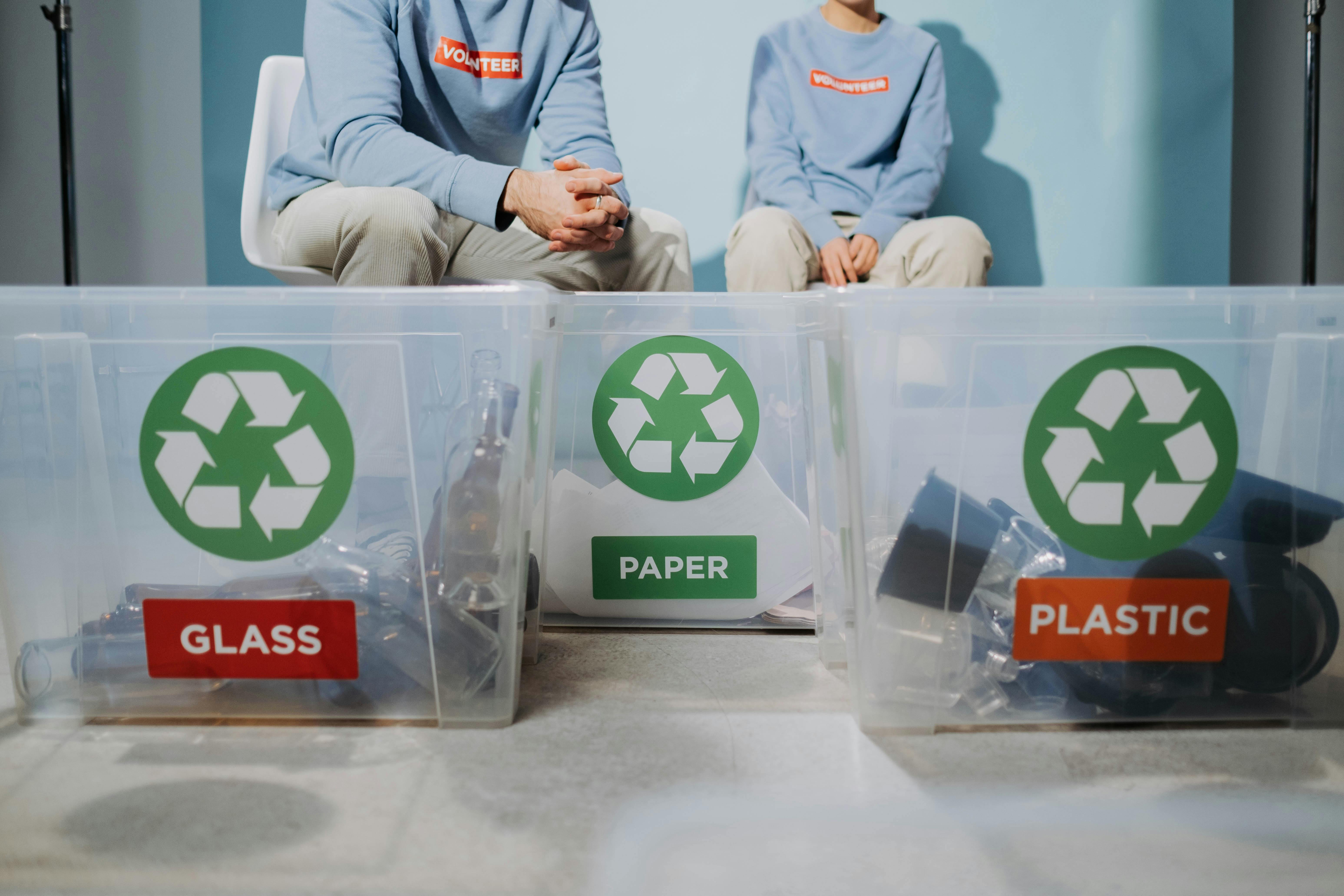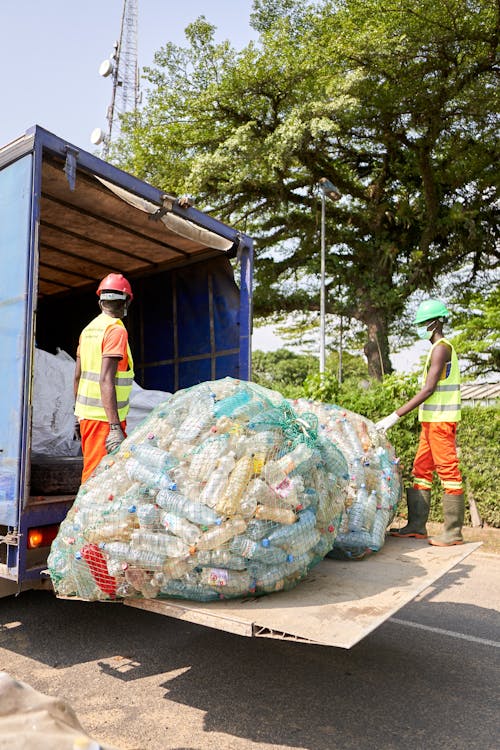The Complex Reality About Recycling in America
Repurposing Our Waste Instead of Disposing It Will Not End Our Dependency on Disposable Goods.
But it Helps.
 The act of disposing of an item into the blue bin marked with a white recycling sign is enough to make some people feel good, like we have done our part to help reduce landfill waste and pollution. Unfortunately, many people do not realize there is a very dirty side to recycling.
The act of disposing of an item into the blue bin marked with a white recycling sign is enough to make some people feel good, like we have done our part to help reduce landfill waste and pollution. Unfortunately, many people do not realize there is a very dirty side to recycling.
A number of reports cast doubt on the principle of recycling. Recycling has been called a myth and a system beyond repair as we are learning that the recyclables picked up at our curbs are actually being shipped and dumped overseas leaching toxic chemicals and microplastics.
ILLUSION or REALITY
It seems some people feel recycling is being used by Big Oil to mislead consumers about the environmental problems with plastics and it has packaging companies using the promise of recyclability to flood the planet with disposable and often toxic plastic trash. The consequences are now clear in the landfill, in our rivers and oceans and in the microplastics that invades our bodies.
It is so bad that in response it has the plastic industry creating rebuttal campaigns referred to as “Recycling is Real.” While recycling has become inseparable from corporate greenwashing, society should not be so quick to cast it aside. In the short term, it might be the best option we have at this moment against the growing plastic waste crisis.
One of the most fundamental problems with recycling is that we are not sure how much of it actually happens as it seems there is much emphasis placed on the material that arrives rather than what comes out. What we do know is the number of products being recycled is much less than we assumed.
Let us say you throw a milk container in the recycling, place the bin out on collection day and forget about it. Depending on where you are in the United States, that carton is taken to a place to be sorted, graded and baled up with other cartons and shipped off to a recycling facility. Depending on the type of material that might happen where you live, or it might occur overseas in places such as Canada, Mexico, India and Malaysia.
RECYCLING RATES
The reality is a different matter. America’s national recycling rate is only 32% and according to the Environmental Protection Agency, two of the most consumed plastics in America is P.E.T. (used in bottles) and H.D.P.E. (used in milk jugs and other items). These items are widely recycled but the rate is only about 30%. Other plastic types like poly films, sometimes called No.4 plastics are not widely accepted in curbside collections. The E.P.A. estimates that just 2.7 percent of polypropylene, known as No.5, used to make furniture and cleaning bottles was reprocessed. When the numbers are crunched, only 10 percent of plastic in the United States is being recycled according to the National Academies of Sciences, Engineering and Medicine.
RECYCLING BENEFITS
Just because recycling does not work well here in the United States does not mean it cannot be done well. In fact, scientific research has repeatedly found that in many cases, recycling waste materials has significant environmental benefits as it results in a net reduction in greenhouse gas emissions and when dealing with aluminum waste, scrap metals and textiles, the savings were substantial.
 RECYCLING CAN SAVE ENERGY
RECYCLING CAN SAVE ENERGY
Let us compare recycling with the alternative which is making the same products from raw materials. For example, recycling material such as steel saves over 70% of the energy used to produce new steel. It also saves water consumption by 40 percent. Recycled aluminum requires only about 5 percent of the energy and saves almost nine tons of bauxite (a naturally occurring, heterogeneous material composed primarily of one or more aluminum hydroxide minerals, plus various mixtures of silica, iron oxide, titania, aluminosilicate, and other impurities) from being hauled out from mines. Anti-plastic diehards will most likely agree that recycling plastics like P.E.T. is better for the environment than burning it - a likely scenario if recycling was to be abandoned completely.
ECONOMIC IMPACT
There are also significant economic benefits to recycling. Recycling creates as many as fifty jobs for every facility created by sending waste to landfills. In fact, the E.P.A. estimates that recycling and reuse accounted for 681,000 jobs in America alone.
SMARTER DECISIONS
Before the country abandon recycling altogther, we need to first try to fix it. Corporations need to consider phasing out products that simply cannot be recycled and designing more products that are easier to recycle and reuse rather than spinning sustainability as art of their marketing. Lawmakers can also help by passing new laws that help increase recycling rates which will drive investment into the sector.
Governments can also ban or restrict problematic plastics to reduce the number of needless plastics from everyday lives, for instance in take-out and food packaging. Needed is clearer more concise labeling of what is and is not actually recyclable and transparency around verified recycling rates.
Greater safety regulations are needed to reduce toxic chemical contents and microplastic pollution caused by the recycling process. And consumers can do their bit by buying recycled or biodegradable products as well as purchasing less and reusing more.
For the future of the planet and our own health, we should be trying to move away from our disposable excesses. Sure, recycling is broken but abandon it too soon and we risk going back to the system of decades past in which we dumped, and dumped more, and burned our garbage without any real care. Do that, and like the recycling symbol itself, our country will be going around in circles.
Change starts with you! Do your part. From hand protection to take-out dining and packaging, MDS Associates offers a growing selection of high-performing, third-party validated environmentally-friendly products that will leave you wondering why you haven't tried or converted to them years earlier! All you need to do is tap the button below and .....
+shop MDS Associates now
Orders. Questions. Volume Discounts.
Click or Call Today
Monday - Friday 8:30am - 4:30pm EST
+800.274.4637 | +716.668.4001 | Fax +716.668.4496 | [email protected]
"We want you to return home safely every day"



